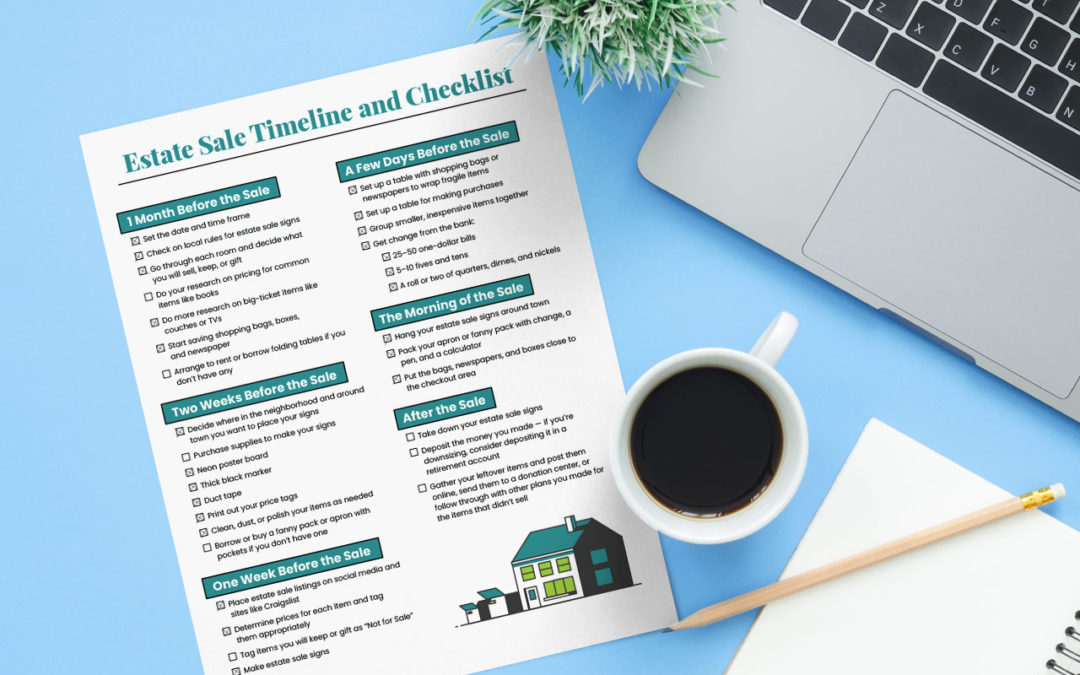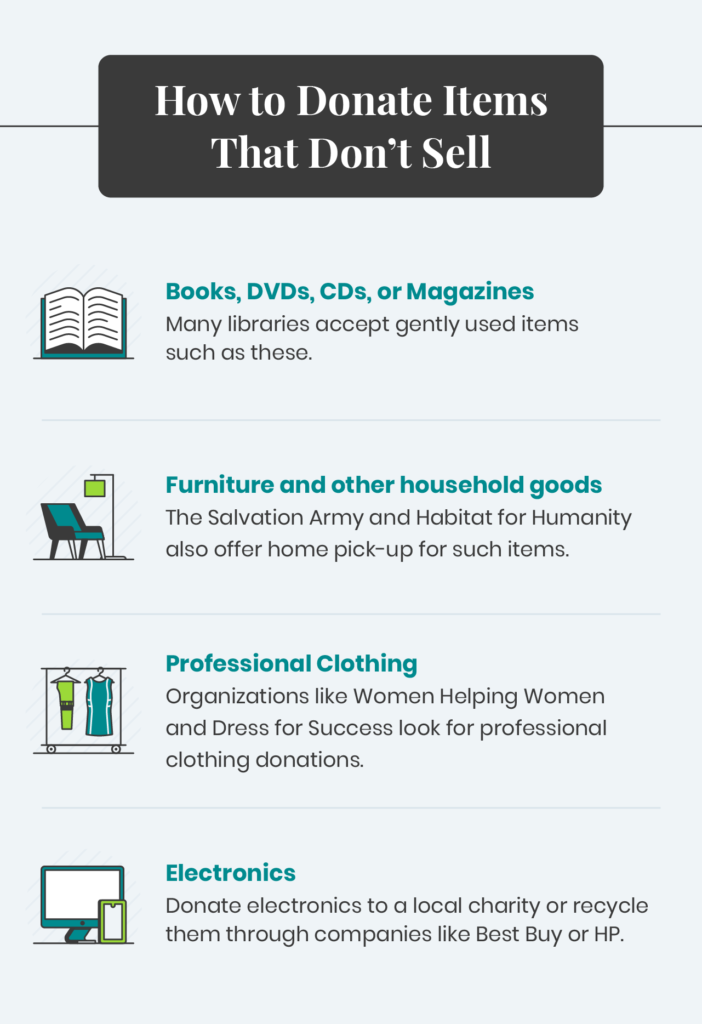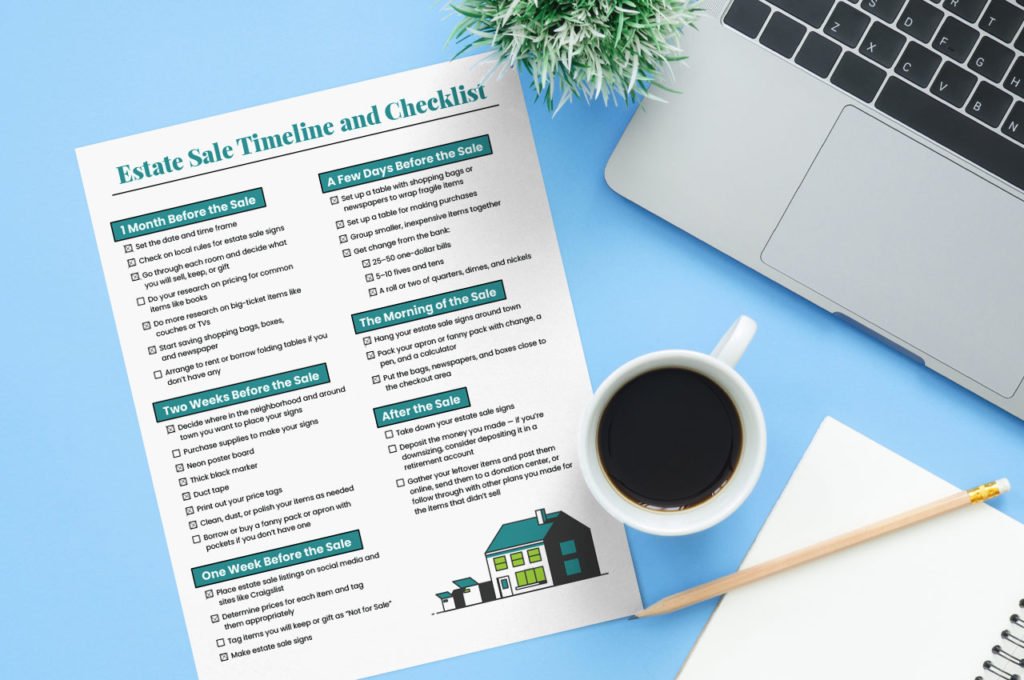Whether you’re looking to downsize yourself or wanting to help a loved one downsize, estate sales can be an excellent way to accomplish this. The term “estate” refers to all the possessions you own — and also includes liquid assets like bank accounts or retirement funds. The goal of an estate sale is to liquidate the rest of your assets, such as furniture or real estate, when downsizing, relocating or wanting to earn some extra money for retirement.
You can either choose to have a professional company come in to sort the belongings, price them, then hold the sale — or you can do it yourself. There are pros and cons to both, it’s mainly a matter of preference. Holding an estate sale yourself can be time-consuming, but you also have more freedom to make most of the decisions. I’ve done several of these – Phil hates them but he’s always surprised and pleased with the amount of money that comes in from the sale. However, before you can hold your sale, there are a few things you’ll want to do.
Determine Your Inventory
Deciding on what you want to sell can be overwhelming, but one thing you can do while sorting out your inventory is to avoid having a “maybe” or “not sure” pile. By being strict with yourself and not allowing any “come back to” piles, you’ll make the process easier. If you still feel overwhelmed, you can try the box method. You start with a few labeled boxes, one for items you’re keeping, one for items you’re selling, and one for items you’re giving to others or donating to local charities, and go through your house looking for items specific to each box.
Price Your Items
To learn what your possessions are worth, do your research before pricing them. Look online on sites like eBay or Facebook Marketplace to get an idea of what other people are selling similar items for. For more antique or valuable belongings, it may be helpful to have an appraiser look at them so you can get a more accurate idea of what they’re worth.
Other To-Dos Before the Big Day
One of the most important things you’ll want to keep in mind when preparing for your sale is to have a designated place for people to make purchases. It can be helpful to have a table set out specifically for transactions or you might want to have everyone that can help with transactions wear the same shirt or apron. This will eliminate confusion with potential buyers and help you have a more successful sale.
It’s always a good idea to do some advertising before the day of. This will ensure you’ll get a good turnout — enabling you to sell more of your items. Before putting up signs around your neighborhood though, you should check with your city or housing community to make sure you’re allowed to do so. You can also post about your sale on social media sites like Facebook Marketplace, your local shop-and-swap Facebook groups, Nextdoor and talk with neighbors to get the word out.
Holding an estate sale can be tiring and emotionally draining. However, having a plan of action and starting your preparations early will help you have a successful sale and reduce overwhelm. If you decide to DIY your estate sale, look through the following visual from Annuiy.org that outlines 8 specific steps for staying organized in the process. You can download a copy of this checksheet from Annuity.org here.
Abby Christensen is a content creator at Siege Media [https://www.siegemedia.com/] who focuses on creating useful content in a variety of industries from finance and retirement planning to lifestyle topics. When she’s not writing, you’ll likely find her watching videos of adorable dogs or spending time with her husband.
LEARN TO LOVE YOUR LIFE AGAIN
 Do you feel like you need to hit the REFRESH button on your life? Download our free guide and begin to create your best life yet!
Do you feel like you need to hit the REFRESH button on your life? Download our free guide and begin to create your best life yet!






